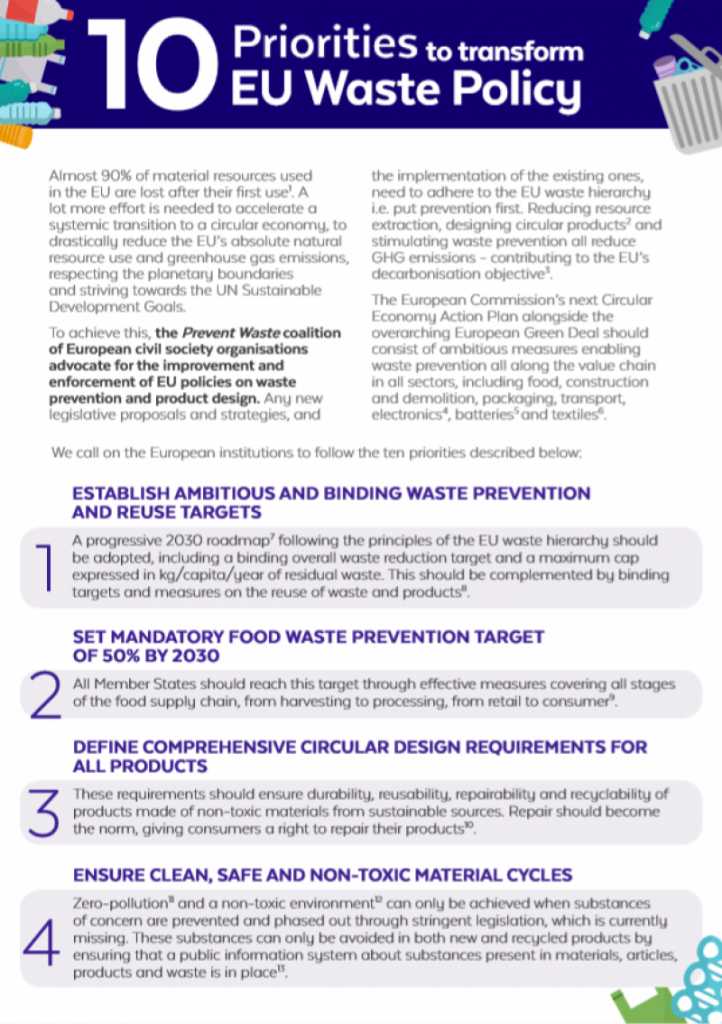On 13 February 2007, Members of the European Parliament voted in pioneering waste rules that have led to higher recycling rates across Europe. [1] They must now keep momentum and vote for more ambitious recycling targets as well as binding measures to reduce waste generation.
Thanks to the 2007 legislation, recycling rates have steadily grown across the EU:
- In 2015, 46% of municipal waste generated in the EU was recycled, as opposed to 36% in 2007
- The highest increases between 2007 and 2015 came from Slovenia, Lithuania, Latvia, Poland and Italy (20–32%)
- Landfilling rates in the European Union fell from 43% in 2007 to 26% in 2015
The improvements show that binding recycling targets have a big impact on waste management. However, waste prevention by repair and reuse is also necessary to close the loop of our economy.
Meadhbh Bolger, resource justice campaigner at Friends of the Earth Europe, said: “We have seen that binding targets work, toxic landfilling has been reduced and recycling rates have increased. However, we can’t get complacent. Recycling is just the first step in cleaning up how we produce and consume – we must move beyond the recycling economy and introduce targets that will ensure a reduction in the overall amount of waste produced, and greater reuse and repair.”
In mid-March, the European Parliament will have a chance to renew its ambition, and vote for long-needed binding targets on waste prevention and higher recycling targets.
NGOs have called for mandatory measures to improve separate collection for all waste streams, including bio-waste, a 70% recycling target for 2030 as well as stronger rules on producer responsibility aimed at driving eco-design.
***
Notes
[1] On 13 February 2007, the European Parliament approved the Waste Framework Directive, introducing a 50% legally-binding target for the recycling of waste and compulsory separate collection for paper, metal, glass and plastic.- The European Parliament will vote in Plenary between 13th and 16th March 2017
- Member States will decide whether to approve the amendments later in 2017








